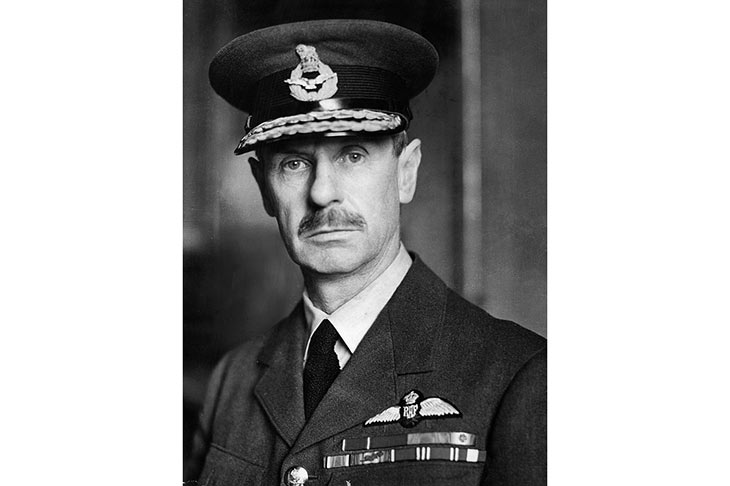Police relations
Sir: As a former Met Police officer, with a similar background to Kevin Hurley, I was surprised how much I disagreed with his article (‘Cop out’, 27 June). Central to this was the lack of emphasis he placed on the attitude of police officers. The emphasis on violent gang crime undoubtedly leads to a distortion in how young black men are perceived by the police, and this in turn can quickly lead to confrontation on the street. The attitude of young police officers is key to avoiding an escalating reaction between them and members of the public. Senior officers need to develop more holistic ways of addressing crime, and acknowledge that the police cannot arrest their way to safer communities. Communities need to be integral to policing solutions.
After leaving the police I became a chaplain at HMP Wandsworth, and it was there I realised that relationship lies at the heart of any constructive change. Among men of varying ages, faiths and ethnicities, it was not their offending behaviour that distinguished them but rather their openness to the opportunity to change — to acknowledge the harm they had done, and believe that they could make a positive contribution to the lives of others. We have to find ways of speaking honestly with one another with an attitude of respect.
Canon Tim Bryan
Bishop’s Adviser on Prison Chaplaincy
Southwark Diocese
Erbil remedies
Sir: I read with interest Colin Freeman’s article about Macer Gifford and his experiences of fighting alongside the Kurds (‘The next Isis threat’, 27 June). For most of 2018 I served in Northern Iraq as part of Operation Shader and can testify to the courage and tenacity of Kurdish soldiers. Mr Gifford mentions the ad hoc prisons in which captives are held, which may result in the repatriation of foreign fighters on human rights grounds.
Any visitor to Erbil will notice that much of the ancient city now resembles a huge construction site, with glass and concrete megaliths, which would not look out of place in Canary Wharf, sprouting around the ancient citadel. One of these is called the ‘Justice Tower’ and is home to the newly formed Kurdish Ministry of Justice. There is an old saying that things move slowly in the Middle East. Hopefully in time there will be the necessary resources and infrastructure in place for the Kurdish administration to deal with its foreign detainees.
P. Thomas
London SW6
Fail better
Sir: James Ball (‘Plan to fail’, 4 July) wonders how many more emergency plans (like the pandemic plan he discusses) are sitting around in Whitehall that might fall apart on first contact with reality. He should remember the words of Von Moltke, the Prussian military leader, who rightly observed that ‘no battle plan survives first contact with the enemy’. They are all likely to fail, but the mark of a good administration is to be able to admit failure, regroup, replan and prevail.
Christopher Hall
West Hill, Devon
All praise to Dowding
Sir: There are flaws in Leo McKinstry’s claim that the Battle of Britain was a close-run thing (‘Winging it’, 4 July). But McKinstry’s greatest calumny is to ‘diss’ the commander in chief of Fighter Command, Sir Hugh Dowding. On 16 May 1940, Dowding wrote to the PM urging that no more of his precious air defence squadrons be sent to the Battle for France. ‘If the Home Defence Force is drained away in desperate attempts to remedy the situation in France,’ he wrote, ‘[it] will involve the complete and irremediable defeat of this country.’ This was not what the army wanted to hear, but Churchill heeded Dowding’s advice.
As for keeping too many planes away from the action, Hugh Dowding retained about one third of his fighter forces as an operational reserve. When he saw the German aerial swarm massing over northern France on 15 September, Dowding committed his reserve to bring every one of his front line units up to strength. On 15 September the Luftwaffe lost seven aircrew for each pilot casualty inflicted on Fighter Command, and the German high command realised that reports of Fighter Command’s demise had been greatly exaggerated. Two days later, Hitler postponed the planned invasion of Britain indefinitely.
Hugh Dowding is every bit as deserving of a column in London as Horatio Nelson.
Wg Cdr Andrew Brookes RAF (Ret’d)
Stockwell, London
That tractor thingy
Sir: To support Dot Wordsworth’s comments about the pronunciation of swath/swathe (4 July), there is an attachment for a tractor used during haymaking that is called a swather. At least in this part of the world, it is pronounced to rhyme with moth, not bathe.
Dr Sarah Pape
Longwitton, Northumberland
No Hinduphobia
Sir: Samir Shah’s article (‘Hinduphobia’, 20 June) poses interesting questions. For a minority anywhere to succeed, they have to respect the ethos and values of the country they live in. The British Hindu community does that with pride. In the IT industry, medicine, the armed forces and business, Hindus are making their presence felt. Among the great British public there is no Hinduphobia, and the community does not have any interest in playing the victim card.
Nitin Mehta
Croydon, London
Have a cow
Sir: I feel for Melissa Kite and the trouble she has with trespassers (Real Life, 27 June). Can I suggest a ‘Beware of the Bull’ sign? Simply borrow a nice heifer from a neighbouring farmer — few walkers will know the difference.
Carl Watson-Gandy
Sampford Brett, West Somerset






Comments